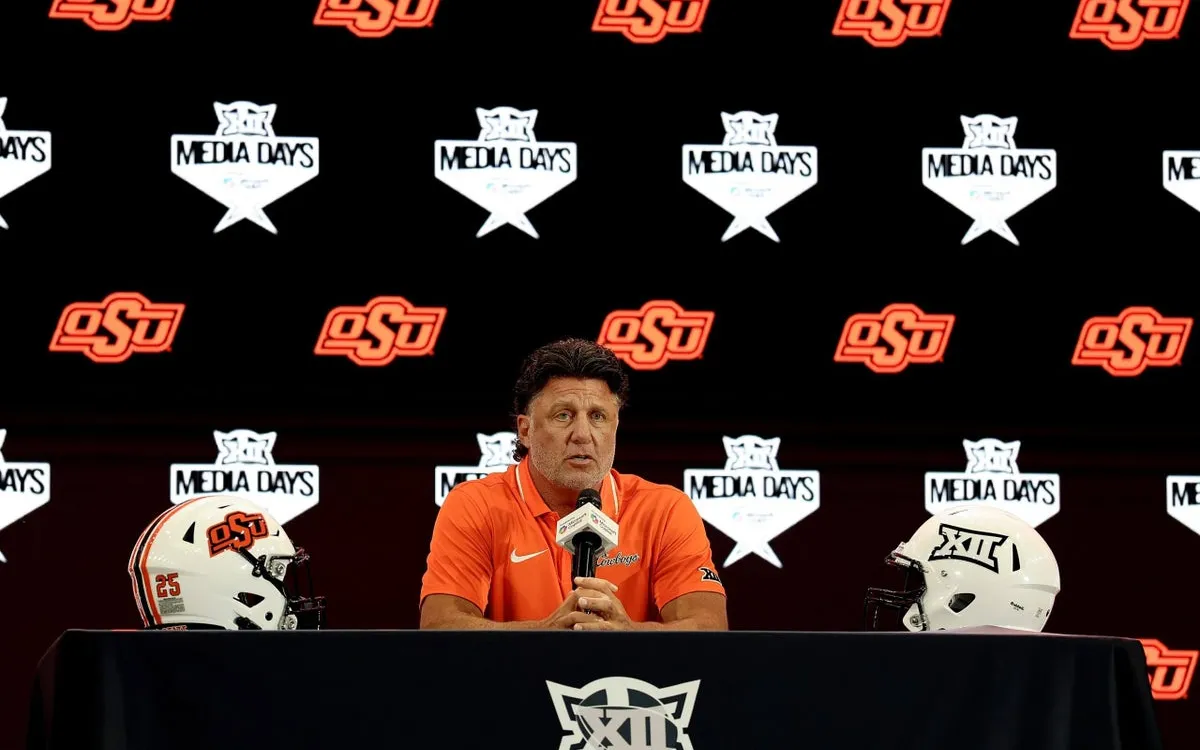
In a significant turn of events, Oklahoma State University announced on Tuesday that Mike Gundy is no longer the head football coach, marking the end of his 21-year tenure. This decision comes on the heels of two of the most disappointing losses in Gundy's coaching career, including a recent 19-12 defeat at home against Tulsa and a staggering 69-3 loss to Oregon, which is now recognized as the most lopsided defeat under his leadership.
Oklahoma State's athletic director, Chad Weiberg, emphasized the need for change in a press release stating, “College football has changed drastically in the last few years, and the investment needed to compete at the highest level has never been more important.” As the university embarks on the search for a new head coach, the focus will be on finding a leader who can navigate the challenges of this evolving landscape in college football.
The Cowboys' recent loss to Tulsa was particularly historic, as it marked the first time since 1998 that Oklahoma State fell to their in-state rivals, and the first loss in Stillwater since 1951. This defeat underscored the urgency for a coaching change.
Mike Gundy, a former quarterback at Oklahoma State and a player alongside the legendary Barry Sanders, concluded his coaching career with a record of 170 wins and 90 losses at his alma mater. Throughout his time at the university, Gundy achieved one Big 12 title and only experienced two losing seasons, in 2005 and 2024. His commitment to the program was evident, having spent 35 of the last 40 seasons in different capacities within the team.
Despite a tumultuous 2024 season that included a winless record in the Big 12, Gundy managed to retain his position after agreeing to make significant staff changes and accepting a pay cut. His restructured contract included a hefty $15 million buyout, reflecting the expectations surrounding his role.
During a recent press conference, Gundy expressed uncertainty about his future with the university, stating, “I don’t really know that needs to take place,” referring to conversations with university administrators. He noted that he has not had an agent for some time, which may have contributed to the lack of communication regarding his position.
The challenges facing Gundy were further amplified when he highlighted the financial disparities in college football, particularly concerning Name, Image, and Likeness (NIL) deals. He estimated that Oklahoma State spent approximately $7 million over three years on player compensation, in stark contrast to Oregon's reported $40 million expenditure in just one year. This comment preceded the disastrous game against Oregon, where the Ducks scored two touchdowns in the opening minutes and led 42-3 at halftime.
Gundy, who was the second-longest tenured active head coach in the Football Bowl Subdivision, leaves behind a legacy of transforming Oklahoma State into a formidable contender within the Big 12. Despite facing criticism and controversy, Gundy managed to elevate the program, notably with a 12-1 finish in 2011 that included a case for contention in the BCS Championship Game.
As Oklahoma State prepares to host Baylor on Saturday at 3:30 p.m. ET, the university has yet to announce an interim coach. Gundy’s departure highlights the intense pressure and evolving expectations within college football programs, showcasing the need for institutions to adapt to a rapidly changing environment.